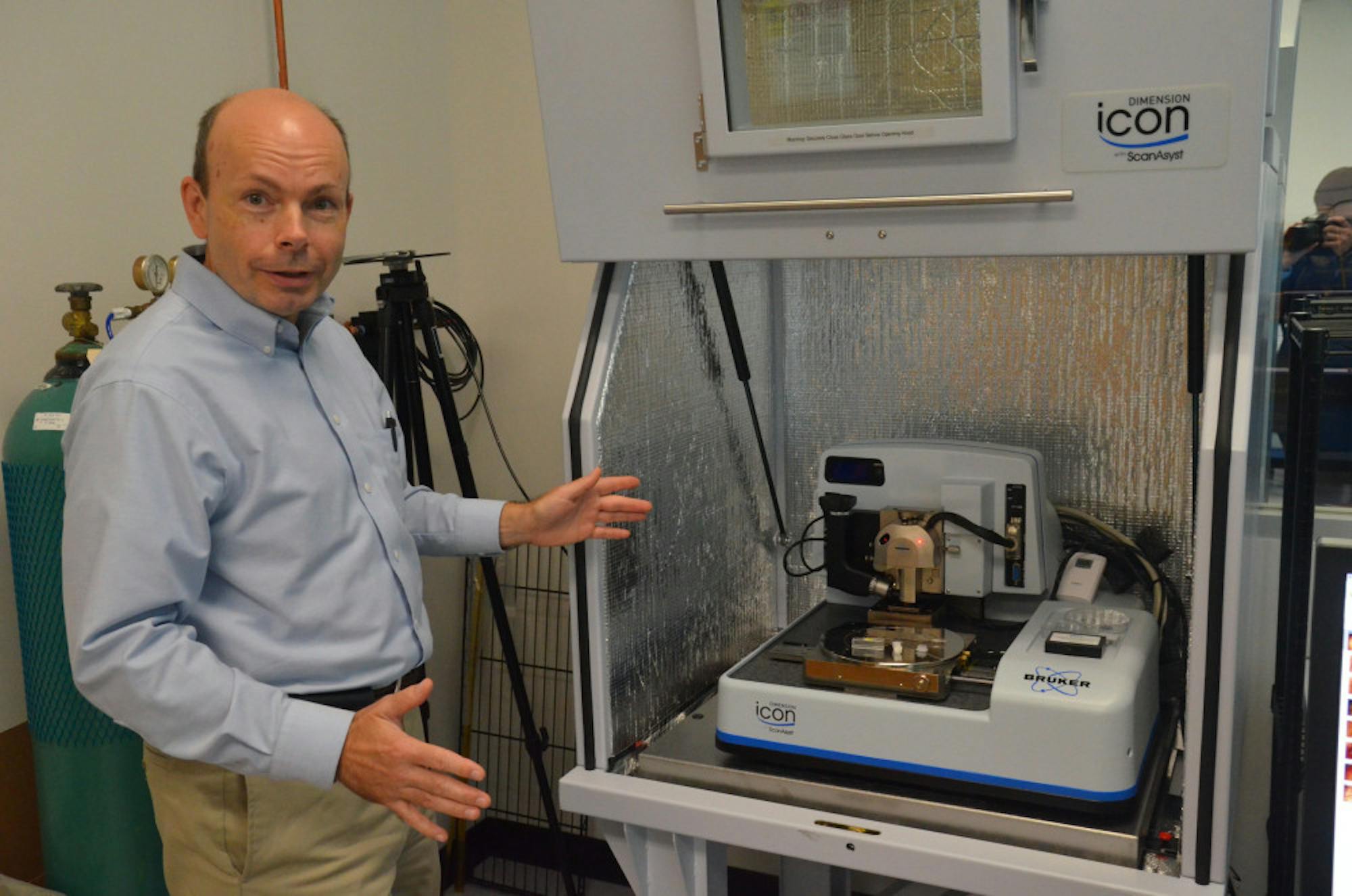Igor Sokolov, the Bernard M. Gordon senior faculty fellow and a professor of mechanical engineering, received a $408,000 National Science Foundation (NSF) award in August to be used for research on the mechanics of biological cells at the nanoscale.
Sokolov explained that with the grant, the team at Tufts will conduct research over the course of three years. They aim to develop a universal model and instrument which will be used to better understand the mechanical properties of cells and their reactions and behaviors to external conditions such as stress.
Sokolov and his team have been conducting research into this field, which covers a key area because of the cell’s role as the fundamental unit of life and the ever-growing presence of cellular diseases such as cancer, since 2007.
According to the NSF’s website, there are three key phases of awarding grants: proposal preparation and submission, proposal review and processing and award processing.
Sokolov said that when applying for a grant, it is essential to have results to corroborate the idea, especially in times of financial constraint. Additionally, as science continues to expand, there are more grants for similar areas of research.
“We received the grant because of our preliminary results on cells using atomic force microscopes, but also to some extent it was a lottery of whether our work would be recognized or not," he said.
According to Sokolov, the work that won him the grant focused on cells’ reactions using specific microscopes called atomic force microscopes, which allow for high visualization of the surface of the cells. These microscopes contain a probe-like needle that can feel the surface of the cells and can measure and manipulate certain forces.
He explained that the results obtained from these experiments proved that cells do not behave as expected, warranting additional years of research on their behavior. Since there is no clear model for cell behavior on the nanoscale, Sokolov's ultimate goal is to create a map of the cell at the nanoscale that can be used to interpret measurements in an independent way. As a result, cellular measurements and data from different labs and places can be compared on the basis of this model, Sokolov added.
Sokolov received his undergraduate degree in physics from St. Petersburg State University in 1984 and his Ph.D. from the D.I. Mendeleev Institute for Metrology in St. Petersburg in 1991. Prior to starting at Tufts, he served as professor of physics and director of the Nanoengineering and Biotechnology Laboratories Center at Clarkson University in Potsdam, N.Y.
Tufts professor receives grant for cellular research

Dr. Igor Sokolov with his Atomic Force Microscope.
Matt Schreiber / The Tufts Daily





